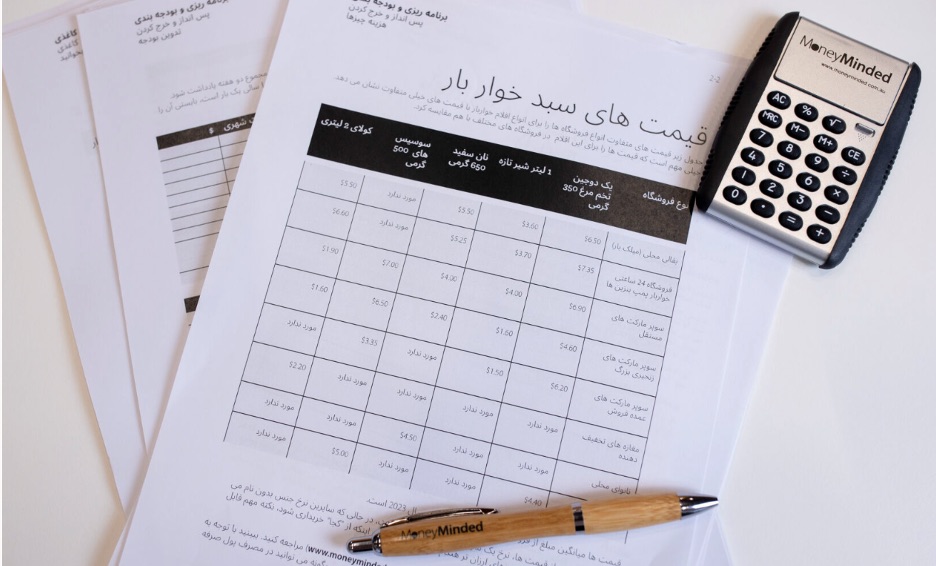-
According to the ANZ Roy Morgan Financial Wellbeing Indicator (FWI), the total financial wellbeing of Australians declined 4.6 per cent, from a score of 56.6 (out of 100) in the 12 months to December 2022 to 54.0 in December 2023.
The report calculates financial wellbeing based on three components: the ability to meet everyday commitments; whether people are feeling comfortable about their current and future financial situation; and resilience – their ability to sustain financial shocks.
"We know Australia has a linguistically rich population, about a quarter speak a language other than English at home.”
The trend for individuals from diverse cultural and linguistic backgrounds is lower again. For example, as of December 2023 the FWI was 44.3 for Arabic speakers, 44.6 for Farsi and 54.3 among those who speak Vietnamese.
Low financial wellbeing is more prevalent among those aged over 50 for non-English speakers, with 19.1 per cent ‘struggling’, compared to only 15.8 per cent of English-only speakers aged over 50.
About 49.5 per cent of English-only speakers are more likely to feel financially stable, compared to 46.2 percent of those speaking another language. People speaking Vietnamese (42.9 per cent), Arabic (40.6 per cent) or Farsi (36.0 per cent) are particularly less likely to feel financially stable.
We know Australia has a linguistically rich population, about a quarter speak a language other than English at home.
Access to resources to help adults build financial capability is crucial for these culturally and linguistically diverse communities.
ANZ's MoneyMinded program is aiming to bridge this gap by translating its popular participant handouts into five additional languages – Arabic, Chinese Simplified, Chinese Traditional, Farsi and Vietnamese.
MoneyMinded is a flexible financial education program to help adults enhance their money management skills, knowledge and confidence. ANZ provides free training and materials for accredited community workers to use with their clients.
In response to requests from community professionals working with these diverse communities, the translated resources aim to help improve accessibility and outcomes for participants.
Why does language matter?
I recently spoke to Sue Farzi, an Australian resident born in Tehran, Iran. She manages the Saver Plus program at the Brotherhood of St Laurence, a social justice organisation that works to prevent and alleviate poverty across Australia.
Sue has vast experience teaching financial literacy and worked with ANZ on translating the materials. For many migrants like Sue, learning about the Australian financial system can be difficult.
“I remember even when I arrived in Australia, I read a sentence about tax returns. I had to go back and do my own research online and find out what that word or concept means. And then trying to connect the Persian meaning to that same concept again. It takes time.”
Those who speak English as a second language are already trying to adapt to a different financial system in Anglo Australia, she says. Another example is superannuation, which many migrants don’t have or has a different meaning in their country of origin.
”It’s difficult to understand the concept. As a person who speaks Farsi, you didn't know what that meant and yet it’s such a fundamental financial concept in Australia.”
“These translations help a lot because participants can understand the complete message that you're trying to teach them,” she says.
Understanding financial concepts in one’s own native language is crucial, she says. Even individuals with some proficiency in English struggle to grasp complex financial terminology.
{CF_IMAGE}
The workshops condense valuable information into accessible formats, allowing saving participants time trying to research these concepts themselves.
“I've seen nothing like these translated financial education materials in Australia. There are some resources on government websites, but never all together in the one place,” she says.
“I believe if someone looks at the information in their own language, it's just makes it much easier to grasp. And they get the idea.”
The translated materials allows participants to understanding the complex financial concepts in the Australian context.
These initiatives break down language barriers and foster inclusivity and empowerment. As financial wellbeing continues to gain prominence, it is our job to ensure everyone has equal access to the knowledge and resources needed to secure their financial future.
Janet Liu is Head of Social Impact and Community Partnerships at ANZ
The views and opinions expressed in this communication are those of the author and may not necessarily state or reflect those of ANZ.
-
anzcomau:Bluenotes/workplace-diversity,anzcomau:Bluenotes/financial-literacy
The language barrier to financial wellbeing
2024-03-19
/content/dam/anzcomau/bluenotes/images/articles/2024/March/Sue%20Farzi%20copy.jpeg
EDITOR'S PICKS
-
Financial health is a lot like physical health. We don’t think about it until things go wrong. But discoveries by behavioural scientists are changing the approach to helping customers.
15 February 2024 -
The Saver Plus program has helped 53,000 people save more than $27 million. It’s also helped people like Danielle with her long-term saving goal of home ownership.
19 October 2023

